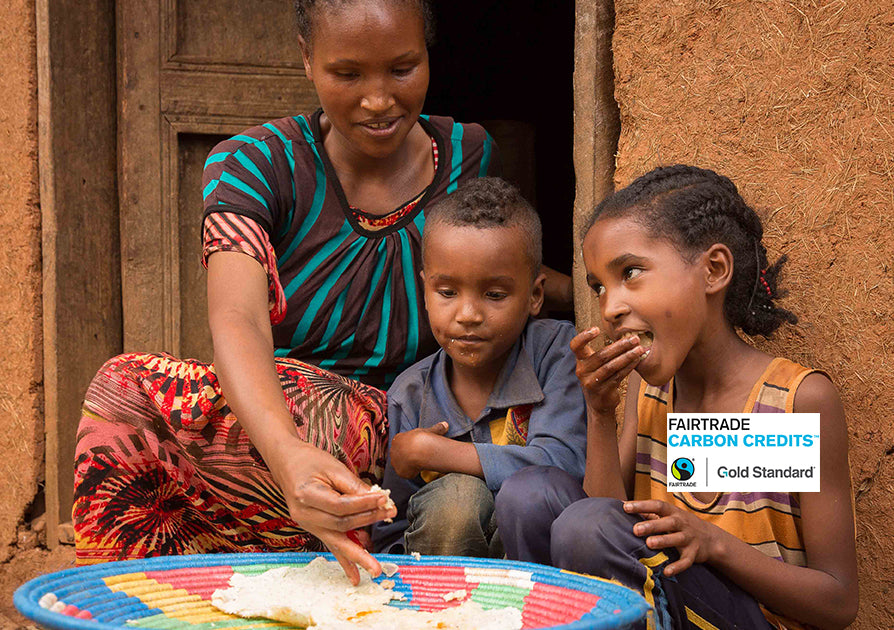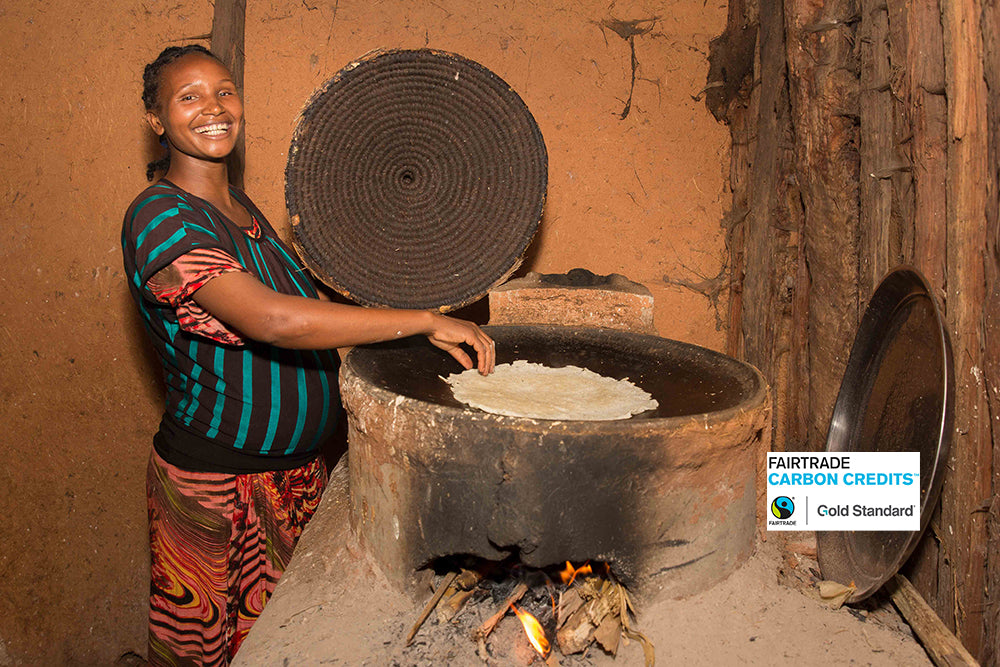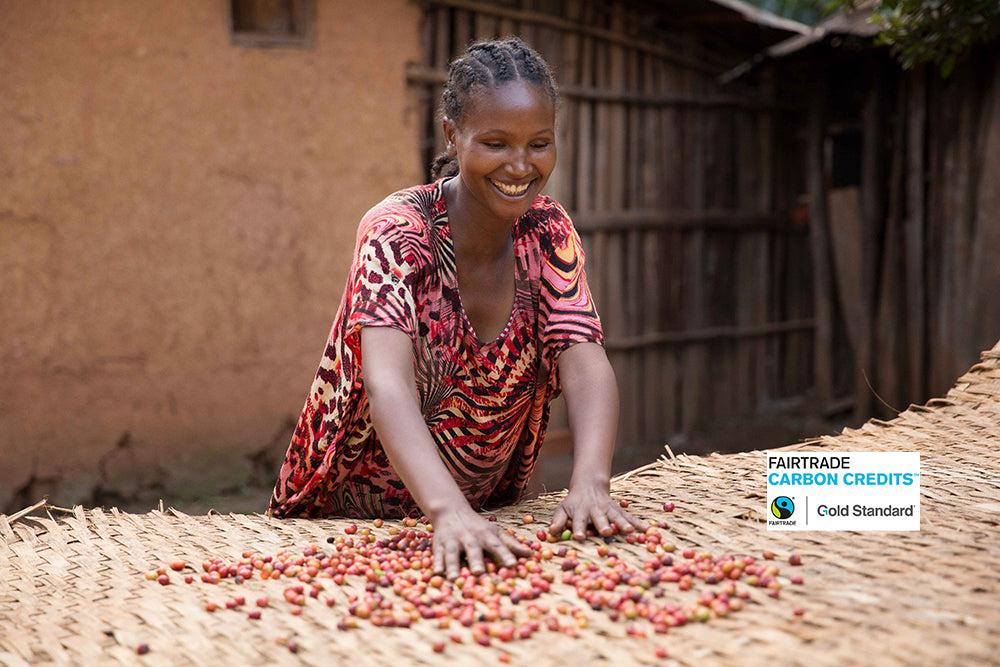Fairtrade Project: Cookstoves for coffee farmers, Ethiopia
Fairtrade Project: Cookstoves for coffee farmers, Ethiopia is backordered and will ship as soon as it is back in stock.
-
REGION: Ethiopia
PROJECT SCALE: Small
PROJECT TYPE: Clean Cooking
PROJECT DEVELOPER: Oromia Coffee Farmers Cooperative Union
VINTAGES: 2021SDG IMPACTS: -


Responsible Consumption & Production

Good Health & Well-Being
SELLER
FairClimate Fund
PROJECT SUMMARY
Deforestation and climate change are threatening the coffee sector in Ethiopia. Coffee is extremely sensitive to rising temperatures. An increase of just one degree already results in a loss of quality of the coffee beans, two degrees means a loss of productivity and at three degrees the coffee plant has difficulty surviving. If current trends continue, coffee could become a scarce commodity in the coming decades.
Small-scale farmers are particularly hit hard. Rapid deforestation in Ethiopia is leading to increasing drought. Coffee farmers (often women) that depend on the income that their land generates and are financially unable to bear the consequences of the changing climate.
In this project, nearly 6,000 households are benefitting from a more efficient cookstove, the Tikikil, for general use and a Mirt, for a flat round bread made of teff flour (Injera) to bake. The Tikikil replaces the much-used traditional way of cooking on an open fire. The participating households own the cookstoves and pay for these stoves partly in cash and partly with the CO2 credits that the use yields.
Cooking with the Tikikil and Mirt reduces the use of wood and CO2 emissions by 40%.
There is less smoke in the house and more time savings for women who need to collect less wood and can cook faster. In addition, coffee farmers are made more resistant to the consequences of climate change through the implementation of a Climate Academy. The academy promotes, among other things, Sustainable Agricultural Land Mechanisms (SALMS), such as promoting shade trees to protect the coffee plants from too much sun.
Project impacts and benefits:
Health
- Clean cooking prevents the inhalation of harmful smoke
- Less physical strain because less wood has to be collected for cooking
Climate and environment
- Decrease in deforestation and improved biodiversity
- Decrease in CO2 emissions
Social
- Women experience a lot of convenience and can spend more time on family and education
- Women are less exposed to forms of harassment while collecting wood
Economic
- By saving time opportunities for women to generate more income
- Local employment through production and maintenance of cookstoves
Mabraat Kabbada is a coffee farmer from Oromia who lives with her husband and children. See her story:
Certification documents for this project can be found in the Gold Standard Impact Registry.
N.B. Individual vintages cannot be selected for purchase. Purchases will include credits from the vintage range stated.







